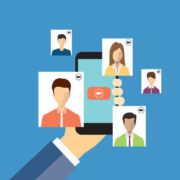The Power of Exceptional Service: The Art of Effective Communication and Responsiveness
In today’s fast-paced world, where customers have numerous options at their fingertips, providing exceptional service has become crucial for businesses to stand out from the competition. We just completed (4) two-hour service training sessions for a client, where we spent a lot of time talking about the importance of effective communication and responsiveness. It’s no surprise that these play a vital role in delivering outstanding service and building long-lasting relationships with customers.
- Acknowledging Emails: Email is a primary communication channel between businesses and customers. Acknowledging emails promptly demonstrates professionalism and lets the customer know their message has been received and is being attended to. It sets the foundation for a positive customer experience and fosters trust and confidence. Timely email acknowledgment shows that you value your customers’ time and are committed to providing them with the best service possible.
- Being Responsive: It is not enough to simply acknowledge a message; promptly responding to customer inquiries, concerns, or feedback is equally essential. When customers receive timely responses, they feel valued and understood. It shows that you prioritize their needs and are dedicated to resolving any issues they may have. Prompt responses build trust and foster a sense of loyalty, as customers are more likely to return to a business that consistently communicates and addresses their concerns in a timely manner.
- Clear and Effective Communication: Communication is the foundation of any successful relationship, and the customer-business relationship is no exception. Clear and effective communication ensures that customers understand your offerings, services, and processes. It minimizes confusion, eliminates misunderstandings, and helps set realistic expectations. When customers receive transparent information, they feel more confident in their decisions, leading to a positive overall experience. Effective communication also involves using plain language to avoid jargon or technical terms that may confuse customers, ensuring that your messages are easily understood by all.
- Personalization: Tailoring communication to individual needs, beyond generic responses, goes a long way. Personalization plays a significant role in effective communication. Addressing customers by name, referring to their specific concerns, and tailoring responses to their unique circumstances create a personalized experience that makes customers feel valued and appreciated. By taking the time to understand their individual needs and preferences, businesses can deliver personalized service that exceeds customer expectations.
- The Ripple Effect: Satisfied customers are more likely to share their positive experiences with others, both online and offline. Word-of-mouth recommendations have a powerful influence on potential customers and can significantly impact your brand’s reputation. By consistently providing exceptional service, acknowledging emails, and being responsive, you can turn satisfied customers into brand advocates, amplifying your reach and attracting new customers through positive referrals.
Providing exceptional service is no longer an option but a necessity. To meet the demand for exceptional service, businesses should offer service training as a solution. It shows you are invested in your employees, allowing them the time and space to learn and grow. Send me a message if you’d like to learn more about our bespoke training program, and how we can help you improve overall customer satisfaction.
Jenna Whelan – VP of Research and Consulting Services









